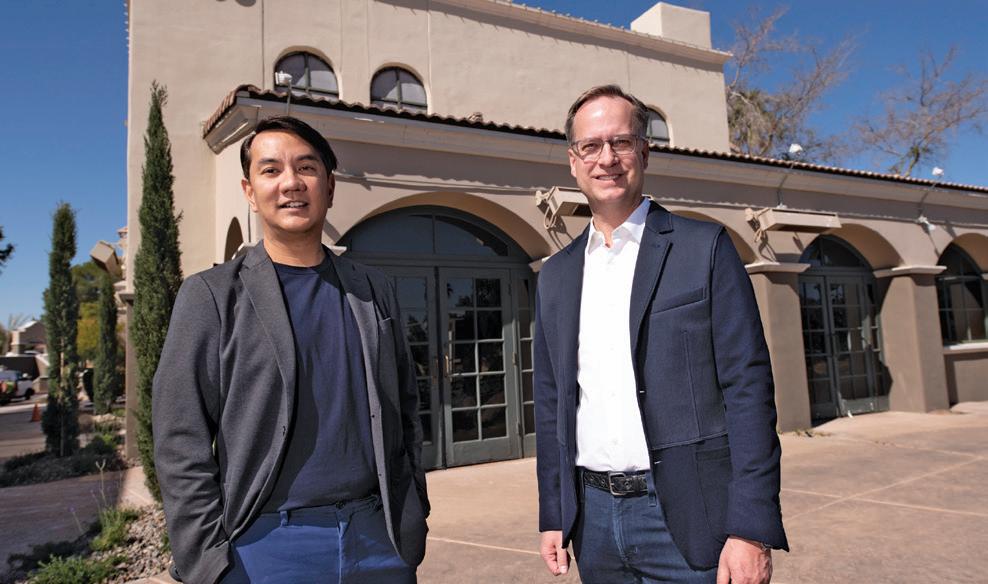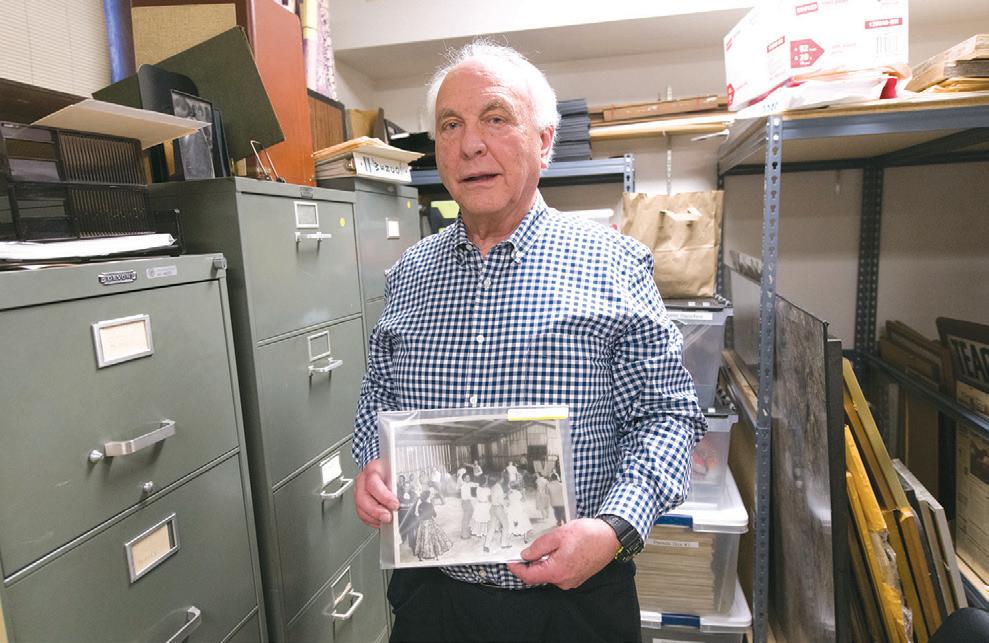
5 minute read
OPINION
Send your opinions to opinions@scottsdale.org
Scottsdale.org l @ScottsdaleProgress /ScottsdaleProgress
Improved communication needed for food recalls
BY ADAM GARBER Progress Guest Writer A s consumers, we rely on the food safety system when we buy groceries. And, we expect that if one of our purchases has been recalled our grocery store will warn us.
However, a new report by the Arizona PIRG Education Fund states that Americans are not hearing about food recalls, and that communication breakdown can have serious repercussions for public health.
According to the Centers for Disease Control, 48 million Americans continue to get sick from the food they eat every year.
Although the food safety system focuses on getting recalled food out of stores, individual consumers may be unaware they have contaminated food in a pantry, refrigerator or freezer in their home.
Effective communication about recalls is critical to combat foodborne illness.
Although they might not be the cause of a recall, grocery stores are access points in the food safety system in which consumers frequently interact.
Grocery stores often have unique information about us and our purchasing habits making it easy to improve transparency about recall noti�ication efforts. And they should.
Based on publicly available information, the Arizona PIRG Education Fund recently assessed whether the nation’s 26 largest supermarket chains tell customers about recall policies, in-store noti�ication, and direct customer noti�ication.
Eighty percent of the nation’s 26 largest supermarket chains – including Albertson’s, Safeway and Whole Foods – received a failing grade for recall information. Only Harris Teeter, Kroger, Smith’s and Target received a passing grade.
To avoid consumers needing to go on a scavenger hunt to �ind out if food they recently purchased was recalled, we recommend the following:
FDA and USDA should: • Require stores to make recall noti�ication policies available on their website and upon request. • Require stores to post signs about recalls at the cash register and on the store shelf where the product would normally appear for at least two weeks for perishable food and for at least one month for frozen foods. • Require stores to create direct customer noti�ication programs that alert consumers of recalled products within 48 hours of a recall.
Grocery stores should: • Post food recall noti�ication policies on their website and provide a copy upon request. • Post signs for recalls at the cash register and on the store shelf where the product would normally appear for at least two weeks for perishable food and for at least one month for frozen foods. Use the information collected through loyalty programs to directly alert customers of recalled products within 48 hours of a recall. Consumers should: • Sign up for recall alerts on the FDA website at fda.gov/safety/recalls-market-withdrawals-safety-alerts and USDA website fsis. usda.gov/wps/portal/fsis/home. • Follow FDA and USDA social media accounts for updated information about recalls. • Ask the customer service desk for information about how you can be noti�ied about recalls for food you purchase and where recall notices are posted in the store.
Until customers can easily �ind information on food recalls, many people will unnecessarily put their health at risk.
-Adam Garber is the consumer watchdog for the Arizona PIRG Education Fund, an organization that conducts research and education on issues in the public interest. The organization’s report, Food Recall Failure, can be found at arizonapirgedfund.org Volunteers help care for foster children
BY DON SHUFELT Progress Guest Writer
If you search for reasons to volunteer, you might come across a list of 20 great reasons. Responses could be to help others, to make a difference, to meet new people or to expand your horizons.
It could be to contribute to a cause you care about, or even to impress your mom – or maybe yourself.
The Corporation for National and Community Service says that volunteering improves psychological and physical health. Volunteers reap the bene�its of feeling a personal sense of accomplishment while building social networks that, in turn, support them in times of stress.
Arizona Helping Hands relies on an army of volunteers to assist in our service to boys and girls in foster care.
In 2019 alone 1,397 individuals dedicated 13,026 hours of work to aid in our mission of bringing hope to kids who have been abused and neglected. On average 36 hours each and every day!
John has run delivery errands, Rich has stacked diapers in the warehouse. Linda has answered the phones while Phyllis and Ellen wrap birthday presents.
Corporations have sent in teams of workers to assist, GoDaddy employees sorted holiday toy donations, VOYA staff decorated birthday bags with messages of hope. It takes many hands to accomplish all the good that we do for boys and girls every single day of the year.
I love asking our volunteers what they get out of volunteering. Our regular weekly people will point to the camaraderie they’ve built with new friends.
Those who come for a one-time project might talk about how it made them feel good. There are some for whom volunteering in our warehouse is therapy for loss or pain.
I’ve met more than one volunteer who has told me that we made a profound impact in their life.
Their helping hands will give a child a safe place to sleep tonight, or will say happy birthday to a child who has been neglected and forgotten.
Using their time and talent to make life better for others has given them purpose. Volunteers have told me that Arizona Helping Hands is their church, their way to give back and feel that they are making a difference.
More than one volunteer has said that loss of a spouse left them in a state of depression,
and that by putting their efforts into helping others they have found a way to cope and to move forward.
We rely on the generosity of each and every one of our volunteers. Your time is a gift to us, and to the boys and girls whose lives we impact every day. From my desk I can see volunteers log in and out on our tracking forms.
I love seeing the smiles on their faces as they sign in for their shift, and it seems to me that smile is even bigger when they sign out. They know that their time has been spent helping children, and I don’t think there can be any better form of therapy.
Thank you to all our volunteers. -Dan Shufelt is president/CEO of Arizona Helping Hands, the largest provider of basic needs to Arizona’s children in foster care. Information: azhelpinghands.org. Contact Dan at dshufelt@azhelpinghands.org.







